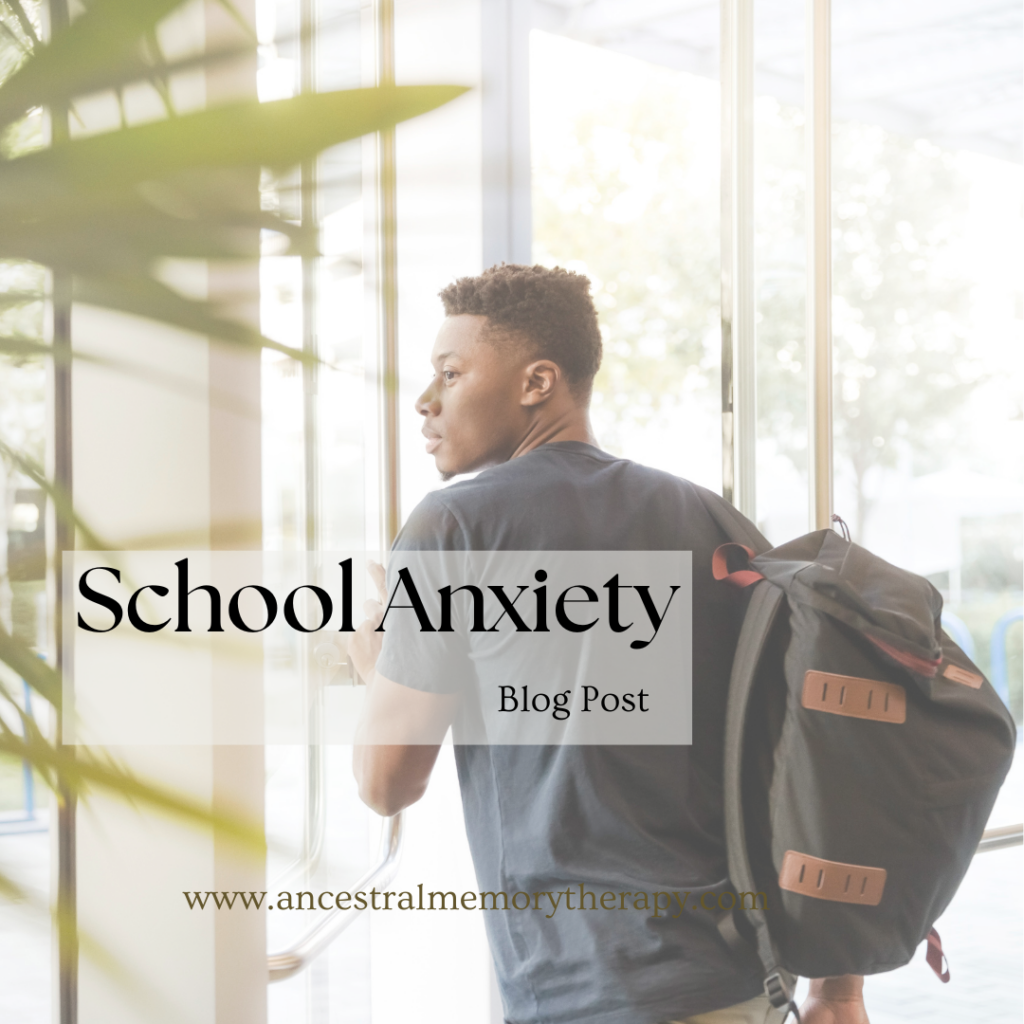It’s completely normal to experience back-to-school anxiety. Especially if you are transitioning from virtual to in person classrooms. Attending for the first time and/or returning to college/university can bring about a mix of emotions.
Sometimes back to school anxiety is rooted in classism, racism and ableism. Living in poverty can feel overwhelming when attending post secondary education. It’s so important to reach out to financial aid to find out what additional financial support exists on campus. If you are the minority in your program, reach to race based social groups to receive peer support. As well, if you are living with a disability, registering with the Access center on campus can make a difference in your academic success. None of these services will meet all of your needs, however, they can make the difference in reducing your stress connected to structural oppression.
Here are some general tips to help you manage with back-to-school anxiety:
Acknowledge Your Feelings: Recognize that feeling anxious about going back to school is valid, and what stories you are telling yourself about the anxiety. It’s okay to feel this way, and what support might you need to sooth your anxiety.
Plan Ahead: Being organized can help reduce your anxiety. Prepare your school supplies, outfits, and transportation days or weeks in advance. Having a plan can prevent last minute stress, and reduce thinking about what’s next.
Visit the School: Travel to your school before the first day to familiarize yourself with the route and travel time. If this idea feels overwhelming, break it down into steps. Ask a friend and/or family member to travel with you and eventually use grounding techniques or objects to manage your stress. Familiarize yourself with the campus layout and buildings. Notice landmarks and/or coffee shops to familiarize your eyes, ears, and other senses of what’s around you.
Practice Relaxation Techniques: Youtube has several channels hosted by therapists and mindfulness practitioners focused on teaching breathing, meditation, and tapping exercises which can help reduce anxiety. You might need to try several exercises to discover which exercise is right for you. Setting aside a few minutes everyday can make a difference.
Set Realistic Expectations: It’s okay not to have everything figured out immediately. Set small achievable goals for yourself and remember that growth takes time. Example, if it’s difficult to wake up in the morning, set a goal of sitting up in your bed in the morning when you hear the first alarm bell.
Seek Professional Help: If your anxiety becomes overwhelming and it’s difficult to engage in the above suggestion, consider speaking to a mental health professional and your family doctor. Sometimes what is perceived as back to school anxiety, might be something deeper. There are times when anxiety is connected to an undiagnosed medical issue, so it’s wise to request blood work from your family doctor. As well, anxiety is connected to trauma, however, the mind has not connected the anxiety to a traumatic experience.
If there are no underlying issues, back-to-school anxiety is often temporary. With time, you’ll likely settle into the routine and find your anxiety is reducing. There does need to be a practice of exposing yourself to the uncomfortable for the anxiety to lessen. Avoiding your feelings of anxiety will often worsen your symptoms. If your anxiety worsens, please do not hesitate to seek help from a professional.




